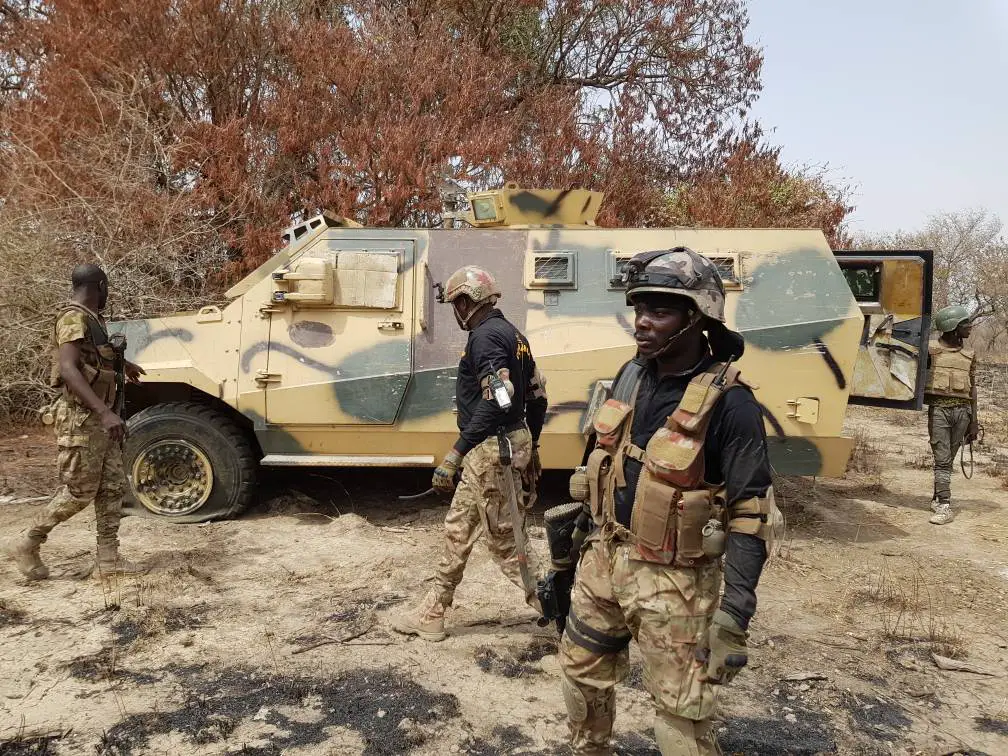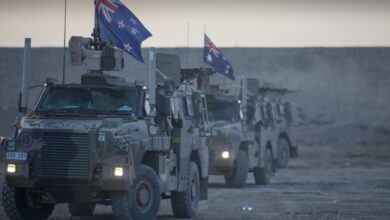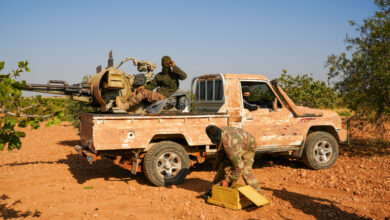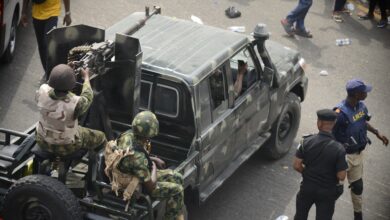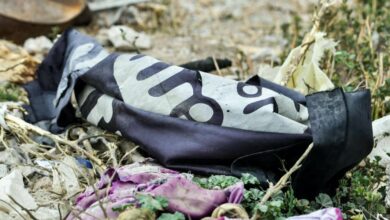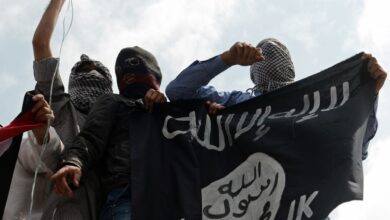Nigeria’s presidency claimed Boko Haram’s 10-year-old insurgency had been “defeated” but admitted that international jihadist groups posed a growing threat.
“The position of the Nigerian government is that the Boko Haram terrorism has been degraded and defeated. The real Boko Haram we know is defeated,” the presidency said in a statement late Tuesday, July 30.
The country is now facing “a mixture of remnants of the Boko Haram, fugitive criminals and the Islam in Maghreb together with West African terrorists bonding together,” Punch reported President Muhammadu Buhari’s Senior Special Assistant on Media and Publicity, Garba Shehu, as saying in a statement emailed to reporters.
“This is a fallout of the collapse of the Libyan State, and from farther away, of the Islamic State in Iraq, Syria and Lebanon. They are taking advantage of our porous Sahelian borders,” the statement said.
“As a consequence of these international gangs, we have seen an increase of trans-border crimes and the proliferation of small arms in the Lake Chad Basin area. Outrages are common in Niger, Mali, Chad and Cameroon,” the statement said.
“In addition to our porous borders, in the neighboring Sahel-Sahara region, a lot of ungoverned areas provide haven for terrorists’ occupation and training.”
Buhari, a former general who vowed to crush Boko Haram when he became president in 2015 for his first term in office, has previously said the group was defeated.
The statement was released on the tenth anniversary of the death of Boko Haram founder Muhammad Yusuf in police custody.
Salafist cleric Yusuf, whose kunya was Abu Yusuf al-Barnawi, founded the group locally known as Boko Haram in 2002.
Confrontations with the Nigerian police and military grew as the group became increasingly radical, and they in turn adopted heavy-handed tactics, fueling escalations in the violence.
In July 2009, hundreds of Boko Haram members were killed in military operations aimed at suppressing the group.
Under new leader Abubakar Shekau, Boko Haram began its infamous campaign of extreme violence in earnest, notably using to great but grisly effect its trademark suicide bomb attacks that other African Islamist militant groups avoided, and Shekau made connections with al-Qaeda in the Islamic Maghreb.
The violence has since spread into neighboring Niger, Chad and Cameroon, prompting a regional military response. More than 27,000 people have been killed and two million others displaced, sparking a dire humanitarian crisis in the region. The U.S. assesses that Boko Haram and ISWAP have been responsible for over 35,000 deaths since 2011.
Boko Haram split
Boko Haram split into two factions in mid-2016. One, led by long-time leader Abubakar Shekau, is notorious for suicide bombings and indiscriminate killings of civilians. Shekau pledged allegiance to ISIS leader Abu Bakr Al-Baghdadi in March 2015, but ISIS central only gives formal backing to the other faction, which it calls Islamic State West Africa Province.
The ISWAP faction, which largely focuses on attacking military and government targets, was led by Abu Mus’ab Al-Barnawi, but in March, audio recordings revealed that ISIS appointed Abu Abdullah Idris bin Umar, also known as Ibn Umar al-Barnawi, as leader. Despite releasing several videos featuring ISWAP since, ISIS has not yet made a public statement confirming the change.
Since May, Islamic State has attributed insurgent activities in the Mali-Burkina Faso-Niger tri-border area to its West Africa Province affiliate, rather than to what was previously known as Islamic State in the Greater Sahara. In a June 15 ISIS propaganda video, ISWAP militants purportedly in Nigeria, Mali and Burkina Faso were shown reaffirming their pledge of allegiance to ISIS leader Baghdadi.
Over the weekend an attack by the Shekau-led Boko Haram faction killed 65 villagers close to the regional capital Maiduguri.
The Multinational Joint Task Force, which comprises personnel from Chad, Cameroon, Niger, and Nigeria, launched Operation Yancin Tafki on February 21 to battle the insurgents. It has said the cross-border operation is aimed at “making islands and other settlements in Lake Chad untenable for Boko Haram Terrorists.” ISWAP is the dominant insurgent force in the Lake Chad area.
On Monday, ISWAP attacked an MNJTF position in the Baga area, killing a soldier and injuring five others. The regional force said it killed 10 insurgents.
But the presidency said it was looking to bolster its military capacity and expected the long-awaited delivery of A-29 Super Tucano turbo-prop aircraft from the United States “beginning next year.”
With reporting from AFP

